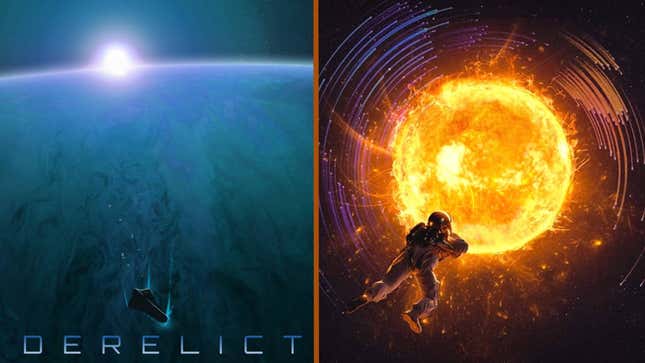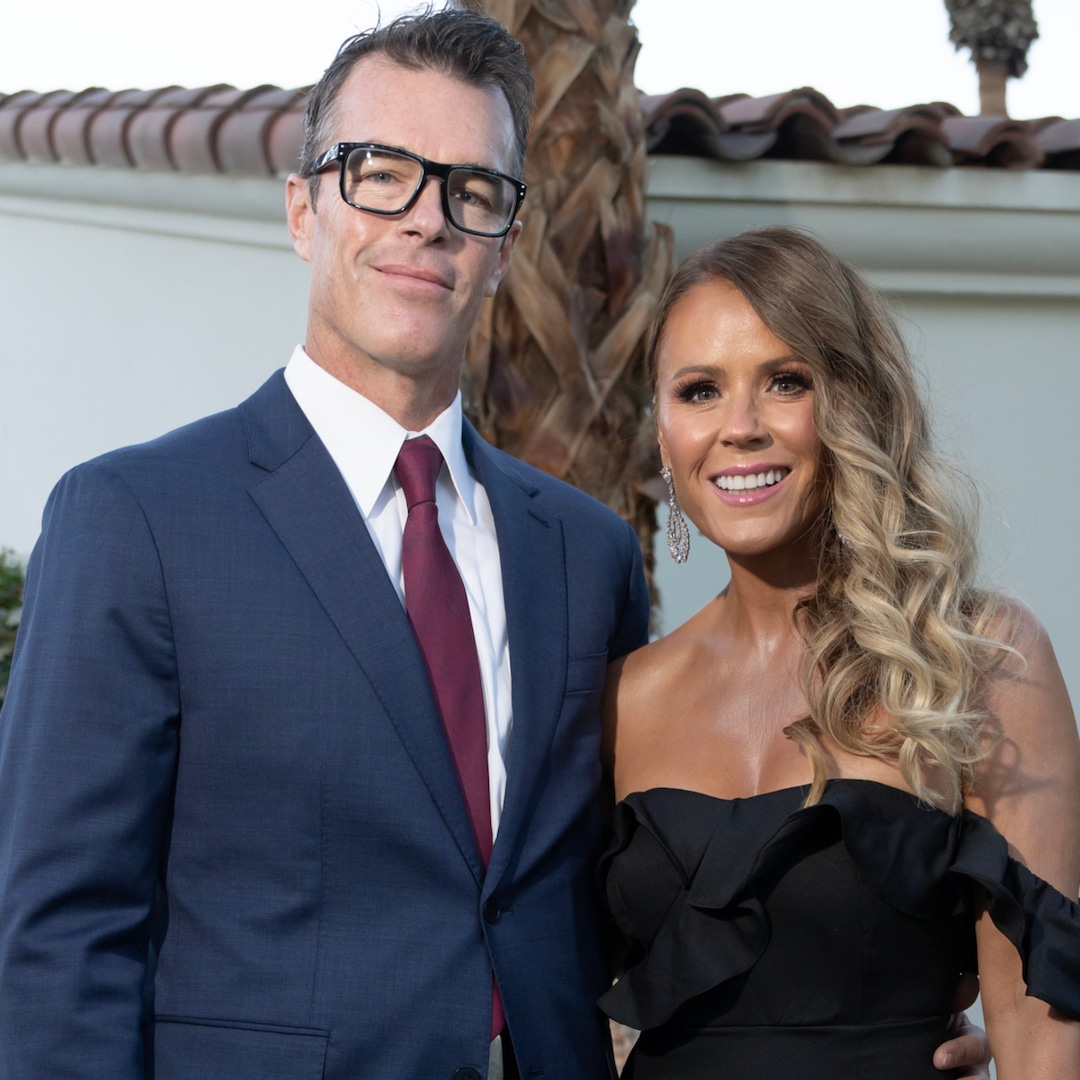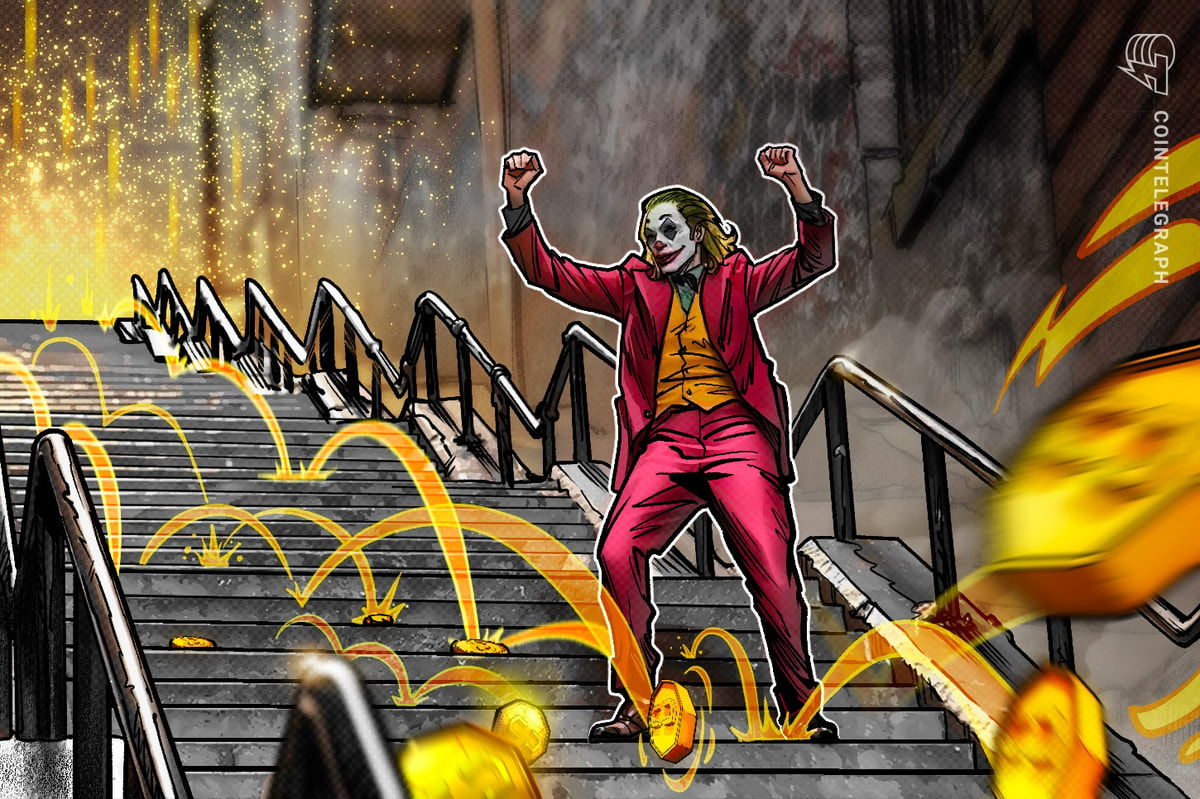
Image: Derelict Podcast / CurtCo / Kotaku
Science fiction TV is a risky business. Even a fantasy show can get away with filming plenty of scenes on a nearby hillside, but when it comes to sci-fi, it’s very much about not looking like our everyday reality. But what if you just removed the need to look like anything at all? That’s the secret behind two of the best sci-fi productions of the last couple of years: they’re podcasts. One of them even stars an Academy Award-winning actor.
Podcasts became even more ubiquitous in 2024, and with that ubiquity came increasing odds that a favorite celebrity is either hosting or guest-starring on at least one of them. This has meant that one previously niche, amateur-driven genre, pure drama podcasts (so not including actual-play RPG shows), have more recently attracted some big names (the likes of Chris Pine and Olivia Wilde starring in QCODE’s Ad Lucem, for instance, or Realm’s Spark Hunter featuring Rebecca Ferguson, Mark Rylance and Charles Dance). Admittedly, few seem to get a second season, presumably the signed celebrities expected to create bigger results than ads for Hello Fresh and mattress companies can return, but it’s well worth digging through QCODE, Realm, and Gimlet’s archives for some great dramas. (Check out The White Vault, How to Win Friends and Disappear People, Last Known Position, Ghost Tape, The Left Right Game, Echo Park, and one of the best audio dramas ever, The Lovecraft Chronicles from the BBC.)
Of the two shows we want to highlight today, one is a big-budget production with an astonishing A-list cast that likely won’t get a second run, while the other is a more indie production that, if anything, sounds even better, and is currently in its second season. Both deserve a place between your ears.

Image: CurtCo / Kotaku
The cast of 2022's Solar is frankly astonishing. That’s even more the case when you learn it comes from a very small podcast company (that’s currently showing little signs of life), CurtCo. For this epic science fiction tale, the roster includes academy award winner Helen Hunt, the legendary Alan Cumming, Stephanie “Rosa” Beatriz, and newcomer Jonathan Bangs, in the four lead roles.
It’s a story—written by Chris Porter—about a manned mission to fly to the sun’s orbit, an endeavor shared between NASC (2045's successor to NASA) and private company CimmTech, with a crew made up of members of each, complete with separate goals and many secrets.
Jumping about its timeline (with the cute excuse that the onboard ship AI, ALI, is so broken that she can no longer restore audio files in chronological order), we begin almost at the very end, after a vast solar flare has caused a terrible disaster on board the Aethon, leaving just two crew members alive—Beatriz’s Wren Guerrero (the actor fully in her deeper Rosa from Brooklyn 99 voice rather than in cheerful Mirabel from Encanto mode), and Bangs’ Jamal Davis—trapped in different sections of the ship, with very different fates awaiting them.
Their attempts to survive are interspersed with scenes set throughout the rest of the trip, from pre-launch all the way up to the disaster itself, where we encounter the conflicts on board, the peculiar actions of CimmTech’s employees, and the mysterious events that follow the launching of a number of satellites into the sun’s orbit.
Time-jumping tales can often become frustrating, more of an exercise in audience manipulation by all-knowing writers, but that absolutely doesn’t apply here. Solar has many mysteries, but they’re not the reason you’ll feel so compelled to listen to all 12 50-minute episodes—this is so much more about the characters. Wren and Jamal’s relationship is the very core, fractious and fraught as it is, but their ongoing engagement with computer ALI (Jenny Curtis) is completely gripping, for reasons I cannot even allude to.
Alan Cumming and Helen Hunt, despite being the real A-list names here, play significantly smaller roles. Not because of some cynical lack of recording time or similar—they’re ever-present in every episode—but simply because both were willing to take on those supporting parts. Cumming is the head of NASC’s team, Hunt in charge of CimmTech’s members. Hunt is also an executive producer on the show, and both shine because of how much they don’t stand out. There’s no grandstanding here, no BIG acting from the famous names, but rather each feels like a perfect character actor. And that goes for the whole cast, including Danielle Pinnock as Taaj Azi and Anne Yatco as Jessa Aquino who are both excellent as well.
The podcast sounds incredible, too. It’s a cliche to observe, but yes, the special effects are always best on the radio, and there’s no budget that could have satisfactorily built the Aethon that exists in my mind. So much of this is due to the incredible audio production and sound effects, with an outstanding team of sound designers and engineers who’ve worked on big-name TV shows and games like Starfield.
This is from 2022, and while there were obviously plans to continue the story (not least that on Earth, where the solar flare is established early in the first episode to have knocked out almost all communications and power in North America), at this point we can probably give up hope. But what was created is a self-contained story that’s so enormously worth your time. And, via the magic of two of the most annoying adverts I’ve ever heard appearing in every episode, it’s all free to listen to on your favorite podcasting app.
OK, so from the name alone, you can see that Fathom or Derelict doesn’t have a big, slick marketing team behind it. Who changes the name of a podcast between seasons, and then in the most astonishingly confusing move, starts referring to the first season as “a prequel” to the second? Well, J. Barton Mitchell it would seem, the polymath behind this stunning piece of audio sci-fi, who is somehow writing, producing, directing and editing every episode.
However, listening to either season, you’d have no way of knowing this wasn’t coming from some enormous production company. It is a sonic masterpiece, with vast amounts of its extensive story told purely through incredible sound design, whether set at the bottom of the sea or in the midst of outer space.
Fathom, which is not a “prequel” but just the first season (I was so confused when I tried to figure out how to begin listening to this show, so trust me, start here), is the tale of a team of scientists and engineers on a huge underwater research laboratory built next to a vast, inexplicable artifact known colloquially as the Vault. We’re a fair way in the future here, humanity having spread across the galaxy, but this whole season is entirely set on Earth, at the bottom of the ocean.
The Vault is weird, and Dr. Eva Graff (Elizabeth Laidlaw), who heads up the team of researchers, is hearing voices. Whispers. However, no one has yet figured out how to get the Vault open, and the private company funding the whole endeavor, Maas-Dorian, is about to pull the plug. It’s just about then that an awful lot starts going very, very wrong.
Like Solar, a lot of Fathom is about the relationship between various characters in its closed environment and a sentient AI. It’s also about an unrelenting series of astonishing disasters, as huge numbers of the cast and crew are facing ever-growing dangers, an awful lot of death, and even giant spider-like warbots of their own creation. And, in a more personal way, it’s a program about the turmoil of being a parent and the permanence of loss.
In season two, the show—now called Derelict—jumps from under the sea to the far reaches of space, with a mostly new core cast on a mission to recover a colossally large ship for Maas-Dorian that’s been mysteriously abandoned during its mission. As you might imagine, this very quickly becomes about learning the hard way what’s behind it all and...look, it’s almost impossible to explain the actual plot of Derelict without giving away huge parts of Fathom.
It’s safe to ambiguously say this is once more a story about human and AI relationships, as well as character arcs driven by the effects of parenting. As much as it might sound like the two seasons are disparate, they are linked in fantastic ways that it’d be ruinous to explain. But what also ties them together is that sound design.
I just can’t celebrate it enough. There are minutes at a time in some episodes that are just soundscapes, extraordinary aural storytelling of gargantuan disaster, entire buildings or spaceships collapsing around characters, and terrifying enemies skittering or crashing around.
A consequence of this immaculate audio production is the release schedule. However, right now you’ve got 15 episodes to listen to, each at least an hour long, with Derelict’s episodes reaching as long as an one hour 45. This means it can be months between episodes, given the incredible amount of work that goes into making a movie-length audio drama of such scale, seemingly mostly by one guy (along with a fabulous cast of smaller-name actors). Season one was 10 episodes long, and season two has six episodes out so far since it began in...2023. So it’s hard to know when a new episode is due, although episode six was October 2024, meaning on average, we can hope for February? Maybe? Admittedly, it was six months between episodes five and six, although that does seem to be unusual.
This show is also listener funded, with a premium option for those who want to back it. Or, if not, it’s all entirely free (with ads) on any podcast app. Please, grab this. It’s a fantastic story, made utterly incredible with its mindblowing audio effects.
.









 English (US) ·
English (US) ·